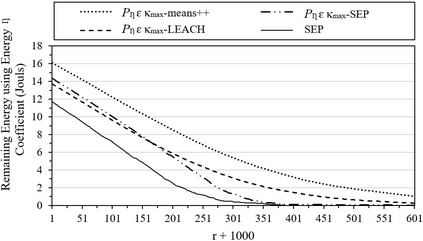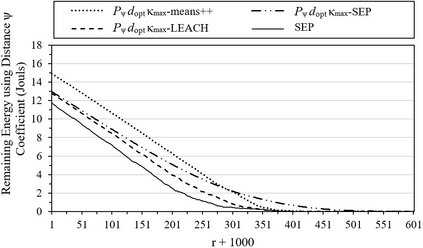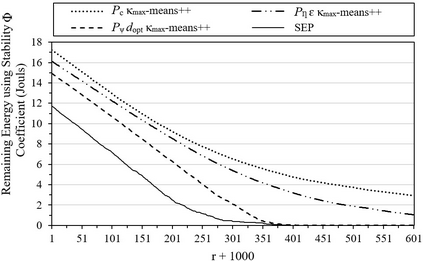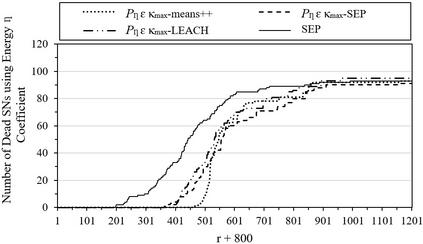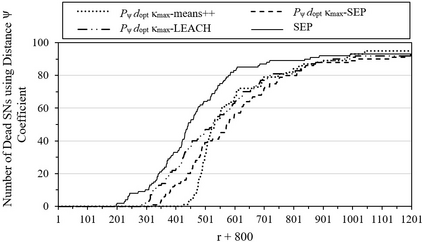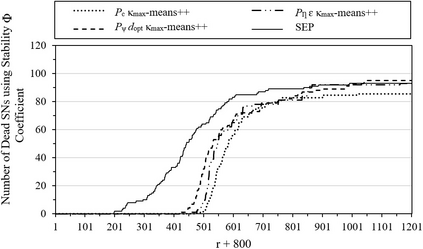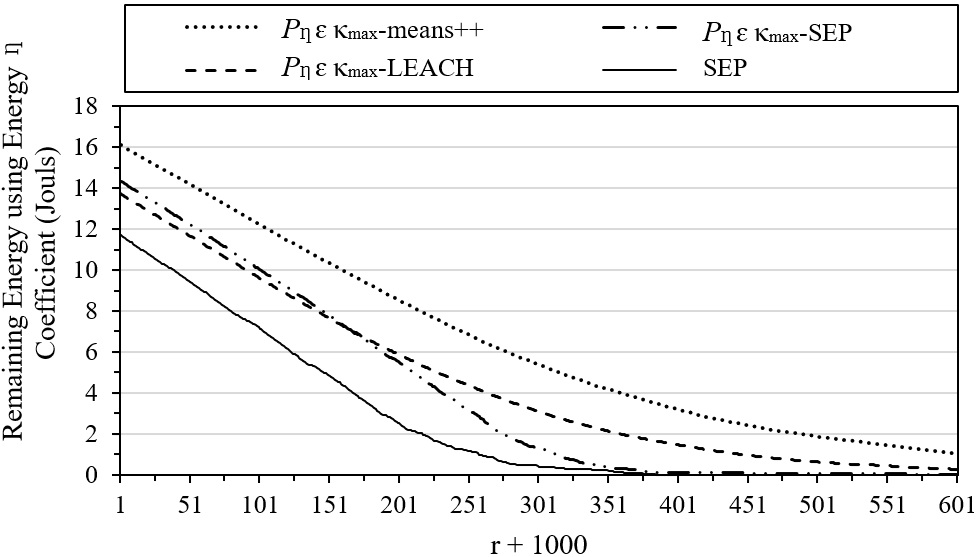The adaptive probability $P_{\text{\tiny{adp}}}$ formalized in Adapt-$P$ is developed based on the remaining number of SNs $\zeta$ and optimal clustering $\kappa_{\text{\tiny{max}}}$, yet $P_{\text{\tiny{adp}}}$ does not implement the probabilistic ratios of energy and distance factors in the network. Furthermore, Adapt-$P$ does not localize cluster-heads in the first round properly because of its reliance on distance computations defined in LEACH, that might result in uneven distribution of cluster-heads in the WSN area and hence might at some rounds yield inefficient consumption of energy. This paper utilizes \nolinebreak{$k$\small{-}means\small{++}} and Adapt-$P$ to propose \nolinebreak{$P_{\text{c}} \kappa_{\text{\tiny{max}}}$\small{-}means\small{++}} clustering algorithm that better manages the distribution of cluster-heads and produces an enhanced performance. The algorithm employs an optimized cluster-head election probability $P_\text{c}$ developed based on energy-based $P_{\eta(j,i)}$ and distance-based $P\!\!\!_{\psi(j,i)}$ quality probabilities along with the adaptive probability $P_{\text{\tiny{adp}}}$, utilizing the energy $\varepsilon$ and distance optimality $d\!_{\text{\tiny{opt}}}$ factors. Furthermore, the algorithm utilizes the optimal clustering $\kappa_{\text{\tiny{max}}}$ derived in Adapt-$P$ to perform adaptive clustering through \nolinebreak{$\kappa_{\text{\tiny{max}}}$\small{-}means\small{++}}. The proposed \nolinebreak{$P_{\text{c}} \kappa_{\text{\tiny{max}}}${\small{-}}means{\small{++}}} is compared with the energy-based algorithm \nolinebreak{$P_\eta \varepsilon \kappa_{\text{\tiny{max}}}${\small{-}}means{\small{++}}} and distance-based \nolinebreak{$P_\psi d_{\text{\tiny{opt}}} \kappa_{\text{\tiny{max}}}${\small{-}}means{\small{++}}} algorithm, and has shown an optimized performance in term of residual energy and stability period of the network.
翻译:暂无翻译

